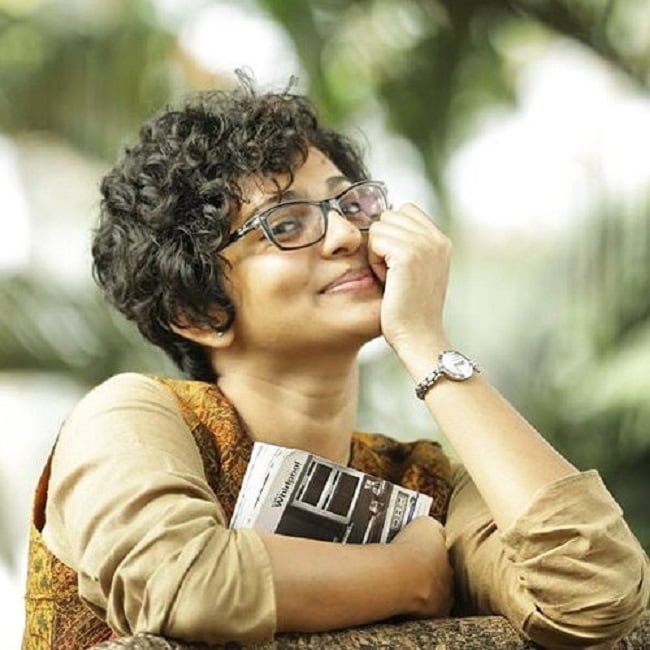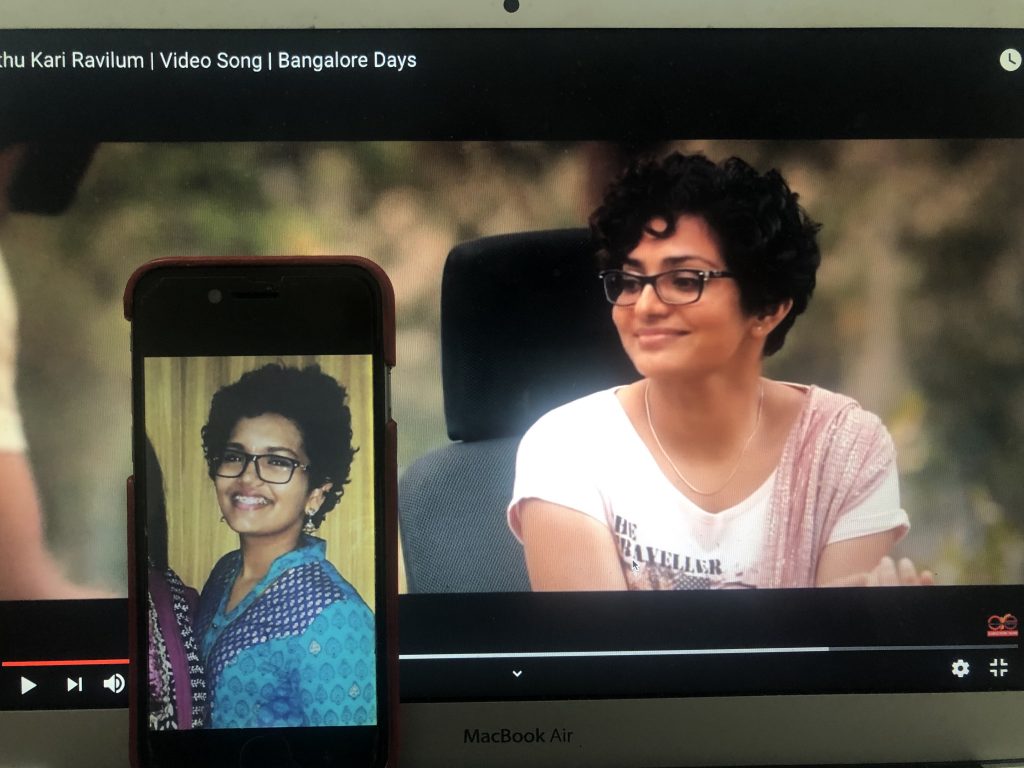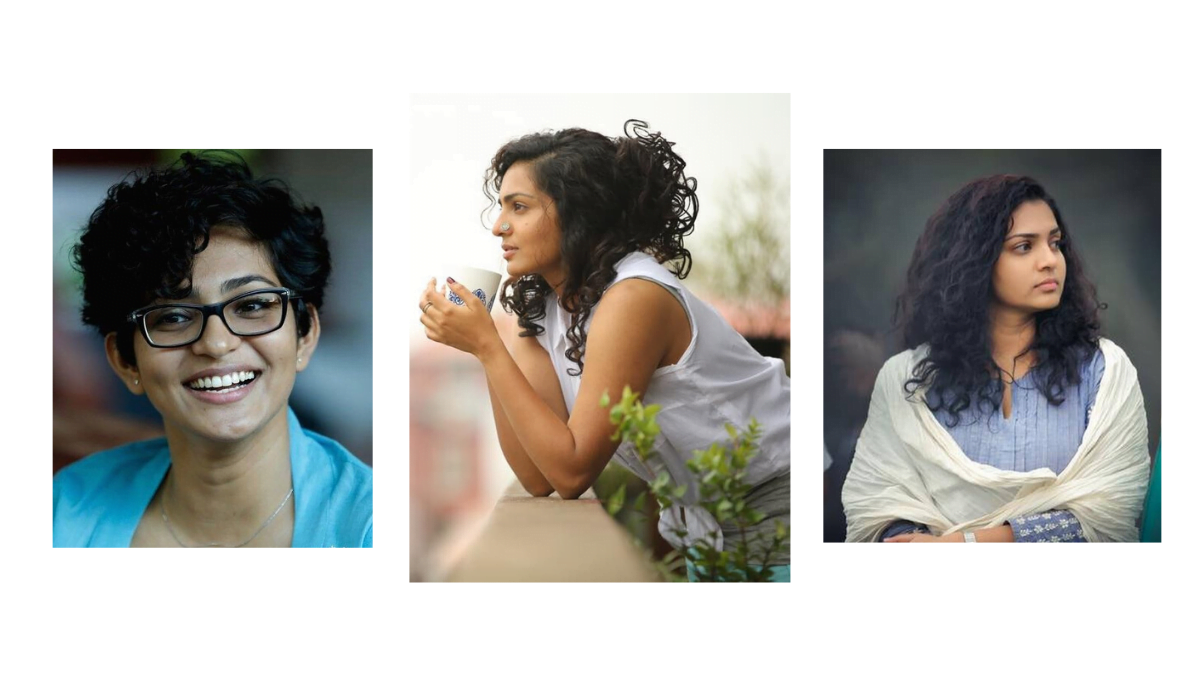Editor’s Note: This month, that is July 2020, FII’s #MoodOfTheMonth is Feminism And Body Image, where we invite various articles about the diverse range of experiences which we often confront, with respect to our bodies in private or public spaces, or both. If you’d like to share your article, email us at pragya@feminisminindia.com.
The year is 2014. I’m an NRI kid who had spent the last 6 years growing up in South East Asia. I had come to Kerala for my summer holidays, to visit my elderly grandmother. That visit, my elder cousin had a grand idea to take us all for a movie at a theatre nearby.
“Let’s take the entire family,” he excitedly told us. “I’ve seen this movie thrice myself!”
Somehow, we piled in 4 elderly people, 4 middle aged people, 6 cousins into 2 cars and 2 motorcycles, and made it to the small neighbourhood film theatre near my father’s hometown in Kottayam. There were lines outside for tickets, on a sweltering Sunday afternoon in July. Vendors sold ice lollies in their motorcycle carts. Sweaty mothers carried their babies in their flouncy dresses.
The movie? Bangalore Days.
The film had been running for 2 months by then. But the theatre was still full. It was a family drama, but geared towards the youth of Kerala. There were hoots, laughter, tears and happiness that effused the hall. But the only thing that registered in my 14-year-old brain was Parvathy Thiruvothu. The woman played a character that was a force to reckon with. Sarah, a radio jockey in Bangalore, was a paraplegic. She was also Dulquer Salmaan’s romantic interest—a feisty, intelligent, well-spoken young woman.
“Look at her,” my cousin whispered to me. “Isn’t she just so beautiful?”
I couldn’t stop looking at her, because for the first time, I saw someone who looked so much like me. She had thick dark framed glasses. Her face was round. Her smile was like mine. But most importantly, she had curly hair. Short, curly hair.
And she was so, so beautiful.

Image Source: IMDB
For me, I was the only one in my family with intense curly hair. Neither my grandparents, nor did any of my cousins have curly hair. My dad had loose curls, and mother had mild waves, at best. My curls were a type 3b-3c—well defined, tight ringlets, and I spent most of my childhood battling frizz over anything else. I grew up with every curly haired nickname you could ever imagine. Between Maggi Noodles to Sathya Sai Baba, I’ve been called everything along the spectrum.
My mother would cut my hair short, and I sported a pixie cut for most of my childhood. When we left India, I went to an international school with my hair plastered down in coconut oil, braided to give it some semblance of uniformity. My new classmates giggled. Some turned their noses and said that my hair smelled weird. I felt like an absolute outcast.
My mother would cut my hair short, and I sported a pixie cut for most of my childhood. When we left India, I went to an international school with my hair plastered down in coconut oil, braided to give it some semblance of uniformity. My new classmates giggled. Some turned their noses and said that my hair smelled weird. I felt like an absolute outcast.
Also read: Cinema Of Male Apathy: Rape Scenes In Malayalam Films Through The…
Because of my frizzy, unmanageable curls, I thought myself to be not beautiful. Whether it be the local Chinese girls, the mixed-race kids or the White expatriates, they all had gorgeous, fluid locks. At 11, they looked like walking Sunsilk ads to me, with hair that reflected light off them. They all had beautiful, straight hair.
I was the freakshow amidst them. My hair could never be pretty enough for me to be considered pretty by anyone else. I had grown up being compared to a religious leader with funny hair. I hated to wake up to scream in pain, when my mother tried to braid my hair, or desperately tried wash out every last drop of oil with rough shampoos. I went and did what many other girls with hair insecurities do.
Parvathy has acted in more acclaimed films, sporting various types of hair, but her impact on my curly hair journey has remained instrumental. In Charlie, a critically acclaimed quirky art house film, she plays the free-spirited Tessa, with hair as wild as her dreams. The film where a girl runs from societal expectation of marriage, for which she also won the Kerala State Award for Best Actress, she and her curly hair reigns supreme.
I permanently rebonded my curls. At 11.
4 years and many more rebonding sessions later, I sat spellbound in the chair watching Bangalore Days. I was shocked to find Parvathy not only look beautiful, but be celebrated for her natural curly haired beauty. To my fragile teenage heart, she sparked a revolution. Less than a year later, I had my big chop. I cut away 5 years’ worth of rebonded straight hair. In a matter of 35 minutes, my hip length mostly straight hair was reduced to short, cropped curls. It used to be where I hid all my insecurities. And it was gone.

It has been 5 years since. Parvathy has acted in more acclaimed films, sporting various types of hair, but her impact on my curly hair journey has remained instrumental. In Charlie, a critically acclaimed quirky art house film, she plays the free-spirited Tessa, with hair as wild as her dreams. The film where a girl runs from societal expectation of marriage, for which she also won the Kerala State Award for Best Actress, she and her curly hair reigns supreme.

Also read: Kumbalangi Nights And The Progressive Turn In Malayalam Cinema
To Parvathy, thank you. You’re outspoken, brutally honest, intelligent, witty and a kickass feminist. Although your hair is just one of the many facets that you’re known for, it changed the way I saw mine. I’m 5 years into this mad journey of loving my curls, and it owes its thanks to the way you showed me yours. Unapologetically.
About the author(s)
Mythily is a student at IIM Indore with an interest in cinema, South Asian culture and music. Having grown up abroad, she often juxtaposes her experiences of a multicultural upbringing and college life in India. You will most often find her with a protein shake humming AR Rahman songs, or adding to her never-ending wishlist on Amazon.




